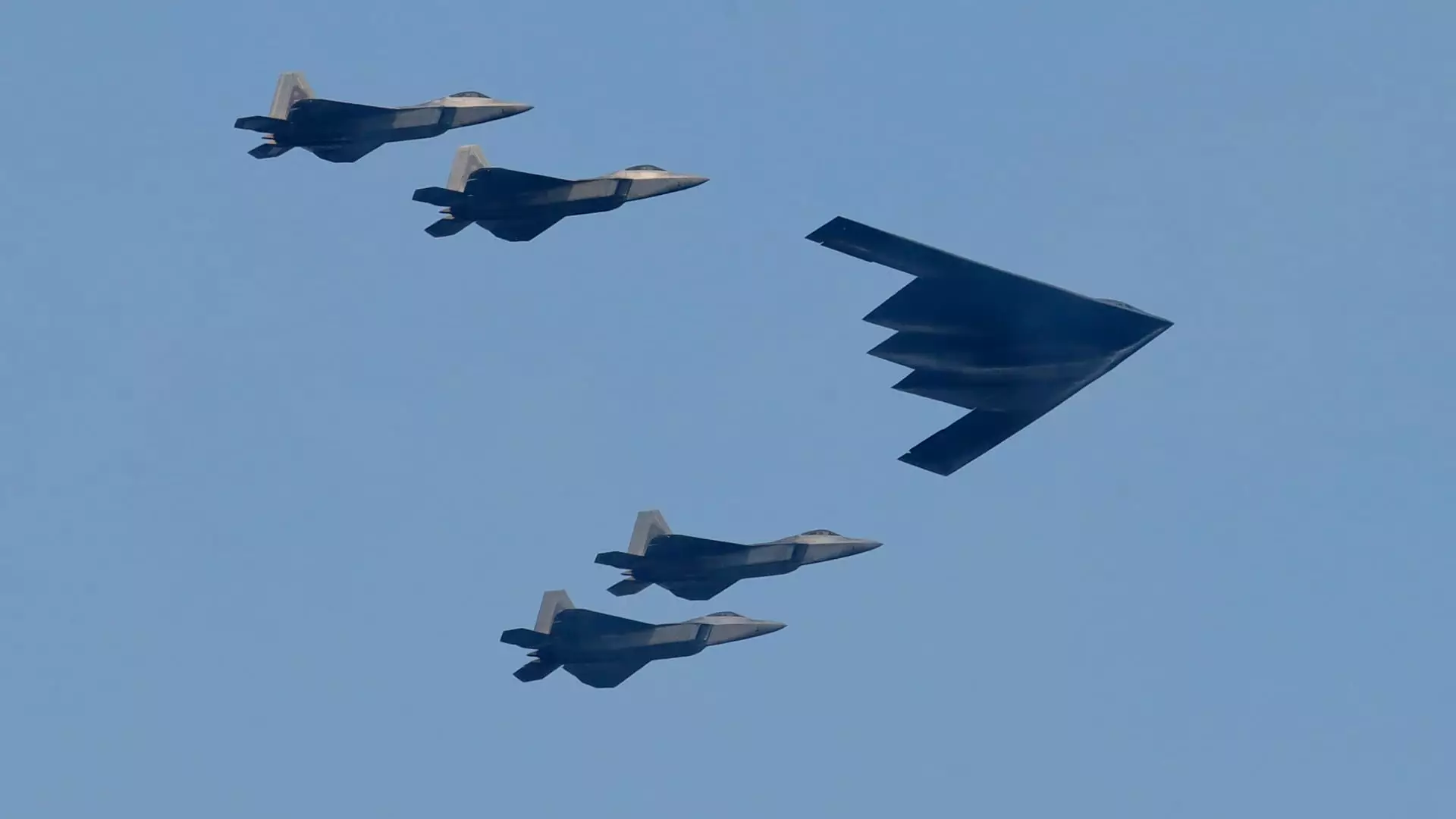In an escalation that risks steering the world toward chaos, President Donald Trump declared the United States’ military action against Iran a “very successful attack.” The announcement rattled not only the Middle East but also reignited discussions about the consequences of American interventionism globally. Trump’s bragging on Truth Social about this aerial assault, particularly on sensitive nuclear sites like Fordo, marks a striking departure from diplomatic protocols that, albeit imperfectly, had previously aimed for balance in a troubled region. While Trump’s rhetoric paints a picture of a triumphant moment for peace, the underlying repercussions suggest a much graver reality.
The Reaction from Global Leaders
Global leaders responded to Trump’s announcement with alarm, and rightly so. Israeli Prime Minister Benjamin Netanyahu hailed the strike as a historic milestone, echoing Trump’s perspective that strength precedes peace. However, this unwavering belief in the efficacy of military might raises unsettling questions. Can we truly pursue peace through relentless aggression? While Netanyahu’s allegiance to this doctrine might align with his political agenda, the international community is veering toward a consensus that military action begets further conflict rather than resolution.
United Nations Secretary-General Antonio Guterres issued a stark warning against the strikes, emphasizing that the action risks spiraling into chaos. His remarks reflect a growing understanding among international diplomats that military solutions are fraught with peril. In contrast to the “strength equals peace” mantra, Guterres points to a poignant truth: without a concerted diplomatic effort, the prospects for stability in the region vanish.
Condemnation from Latin America
The voices of condemnation echoed strongly from Latin America, where leaders voiced their opposition to U.S. aggression. Venezuelan Minister of Foreign Affairs Yvan Gil was unequivocal in his denunciation of what he termed the “military aggression” against Iran. Similarly, Cuba’s President Miguel Diaz-Canel joined him in calling the attacks a gross violation of international law. Their rhetoric sheds light on a broader geopolitical context; for many nations that have faced the brunt of U.S.-led interventions, the target of these strikes symbolizes a larger, troubling pattern of American interventionism.
These voices from Latin America reflect a nuanced critique of U.S. foreign policy objectives, and their unequivocal condemnation reminds us that many nations do not view U.S. interventions as liberating. Rather, they see a history fraught with unintended consequences that upset the fragile balance that often exists in these regions.
The Call for Diplomacy
Amid this cacophony of reactions, countries like Mexico emphasized the pressing need for diplomatic dialogue as a countermeasure to escalating tensions. Their insistence on peace and calm underscores an essential truth: in the quest for stability, dialogue must take precedence over military action. Mexico’s Ministry of Foreign Affairs ardently called for immediate de-escalation, clearly prioritizing diplomacy over aggression. This stance not only aligns with the principles of international law but also embodies the sentiment of many who believe that engagement rather than enmity is crucial in addressing the global crisis.
In light of the threats posed by unilateral actions, it is crucial that the international community re-evaluate its approach. The Arab Spring and subsequent U.S. interventions remind us that simplistic strategies can often exacerbate, rather than solve, a problem. In fostering dialogue, we open the door to negotiation and understanding that can yield more durable solutions than those found on the battlefield.
A Dangerous Precedent
Trump’s brazen action not only threatens immediate ramifications but also sets a dangerous precedent for future governance. The normalization of military intervention as a policy tool elicits concerns about what the future may hold. Should leaders feel emboldened to take unilateral military action based on rhetoric rather than comprehensive analysis and the potential fallout? In an age where information spreads rapidly, the impulse to respond with force can easily override the critical necessity for dialogue and due process.
In navigating this treacherous landscape, it is imperative that we foster resilience against knee-jerk reactions that hold the power to transform geopolitical dynamics overnight. As the world watches the fallout from Trump’s decision unfold, the importance of upholding diplomacy and international cooperation in addressing such conflicts becomes ever more essential. The path ahead demands thoughtful engagement rather than impulsive aggression if we are to reclaim the possibility of peace in an increasingly divisive world.


Leave a Reply